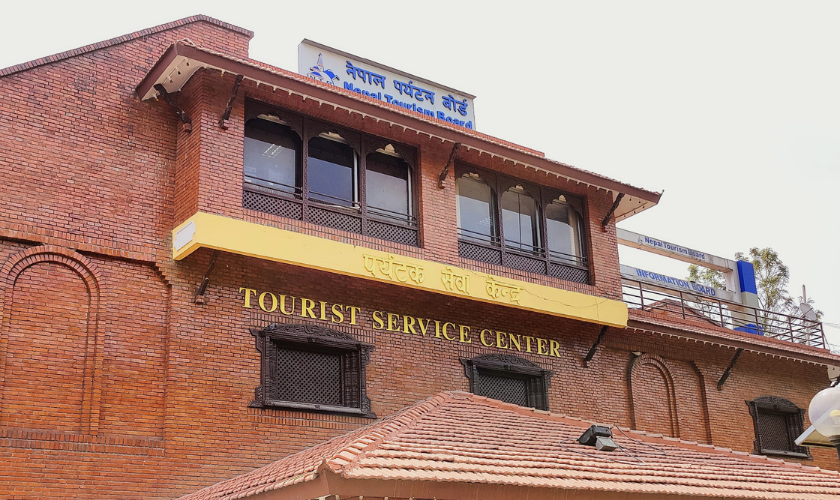Nepali Congress General Secretary and lawmaker Gagan Thapa has said that Nepal’s chronically low spending is not merely a matter of poor project execution, but the outcome of deeper structural and legal dysfunctions that continue to paralyse the state’s capacity to spend effectively.
Thapa was a panellist in a discussion titled *“Driving Growth Through Reform”* at the 9th NewBiz Conclave and Business Excellence Awards, held Thursday in Kathmandu. He made the remarks in response to a question from former banker Parshuram Kunwar Chhetri on measures needed to boost spending in the short and medium term.
Read: Nepal’s Telecom Sector Is in Decline—and We Can’t Fix It Alone: Ncell CEO
Outlining long-prevailing fiscal mismanagement and legal bottlenecks in Nepal, Thapa stressed the need for urgent legal reforms, modernised financial planning processes and alternative financing strategies to break the stagnation in public spending and infrastructure development.
“We often point to unspent budgets and say we failed to utilise funds allocated for capital expenditure,” said Thapa. “But the truth is, our problems run far deeper—we are operating under such tight resource constraints and outdated legal frameworks that even the money we do have goes unused.”
In Pictures: 9th NewBiz Conclave & Business Excellence Awards 2025
He argued that unless Nepal taps into alternative sources of financing, the gap between rising development needs and available resources will continue to widen. “The issue is not just about fund availability—it’s about structural limitations. Without reforming how we plan, budget, and finance projects, we will remain stuck.”
Legal Reform as a Starting Point
Thapa highlighted the legal framework the government intends to implement for exploring alternative financing. It is currently in Parliament. “We want to expedite its passage. This year’s reform agenda focuses squarely on legal changes, which we hope will trigger behavioural shifts in the system,” he said.
He stressed that reforms must not only address laws but also tackle planning inefficiencies and institutional rigidity. In the medium term, he said, the focus must shift to strengthening budget formulation, expanding the resource pool, and ensuring fiscal coherence across federal, provincial, and local levels.
“Big infrastructure needs big resources. And unless we can mobilise those, our development spending simply cannot grow,” Thapa said.
Read: Nepal’s Business Landscape Shines at 9th NewBiz Conclave and Business Excellence Awards
Fragmented Budgeting and Political Interference
Thapa criticised the practice of budget fragmentation, citing it as a major hurdle to effective project execution. “We often see a Rs 500 million project being allocated just Rs 500,000 or Rs 5 million. With such fragmented funding, projects stall, money goes unspent, and the blame falls on poor implementation. But the real problem begins during planning,” he noted.
He also drew attention to weak institutional coordination and legal ambiguity at the provincial level, noting that nearly 100 local governments were without Chief Administrative Officers during budget preparation this year. “Without key personnel, how can we expect sound budgeting or execution?” he asked.

Outdated Laws and Procurement Bottlenecks
Thapa singled out the Public Procurement Act as a long-standing roadblock. Despite multiple amendments, he said, core inefficiencies remain. “A dedicated team is currently reviewing feedback for another round of revisions. Legal reforms in procurement alone could allow the government to spend two to four times more effectively,” he added.
Emphasising that legal mandates—not just institutional culture—must guide reform, Thapa said, “We cannot expect behavioural change unless certain actions are made legally binding. Otherwise, nothing changes.”
Read: Khanal Calls for Deep Structural Reforms to Restore Economic Momentum
Highlighting systemic dysfunction, Thapa noted that provincial secretaries are transferred four to five times a year. “With such frequent disruption, how can provinces execute their plans?” he asked.
Beyond Political Blame
Thapa pushed back on the narrative that political instability is to blame for low expenditure and stalled reform. “It’s not the frequent changes in government that are the issue. The problem lies in weak political will, lack of clarity, and poor leadership at the top,” he said.
He urged both his party and coalition partners to use the current momentum to pursue meaningful reform. Referring to the joint political committee formed by the Nepali Congress and UML, Thapa said its only worthwhile purpose would be to advance the reform agenda. “If we don’t use this platform to agree on actionable reforms, we’re wasting time.”
Read: Babulal Chachan: The Industrialist Who Dreamed Beyond Border
Citing the Khanal Commission’s report as a guiding document for structural reform in key sectors such as IT, telecommunications, and green growth. “If we truly have political will, there is nothing stopping us. The strength of our parliamentary system is that the government always has the majority to legislate. What’s missing is the intent,” he concluded.











